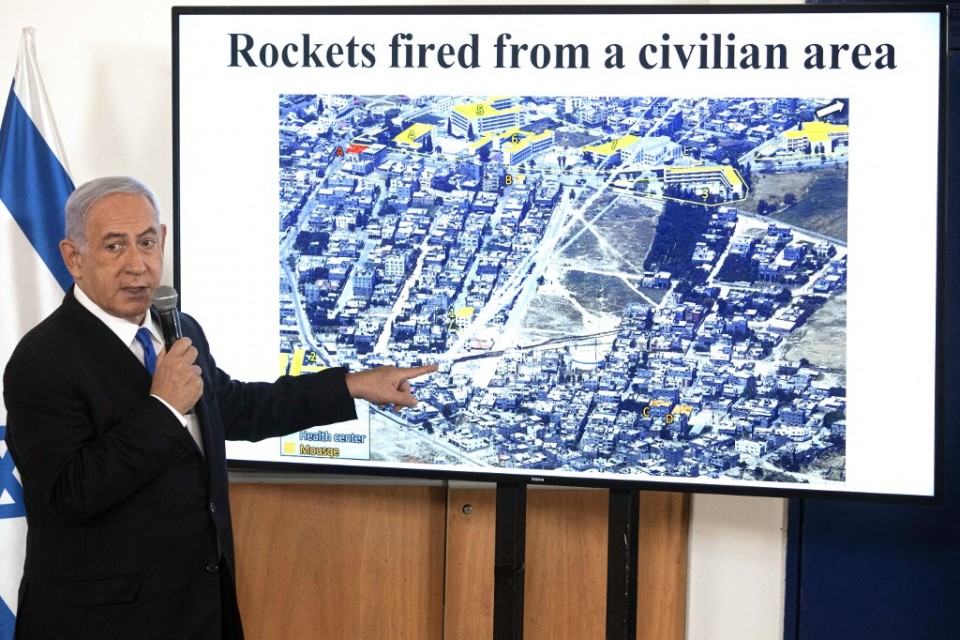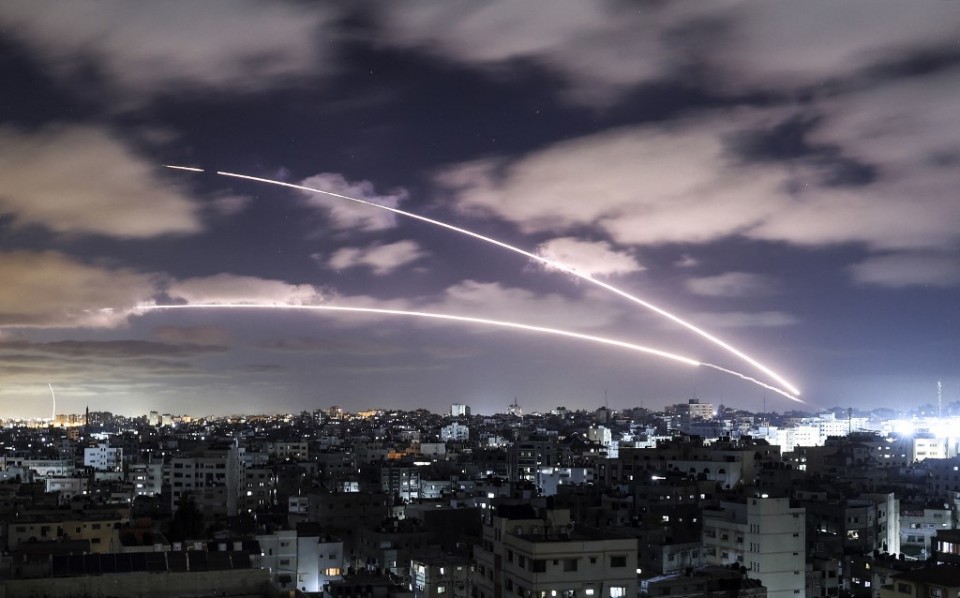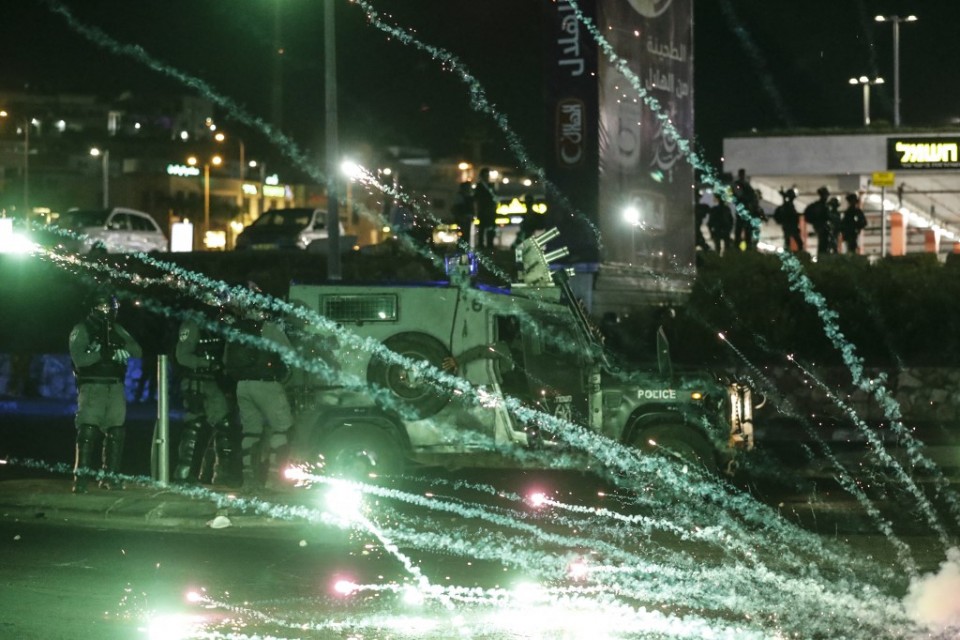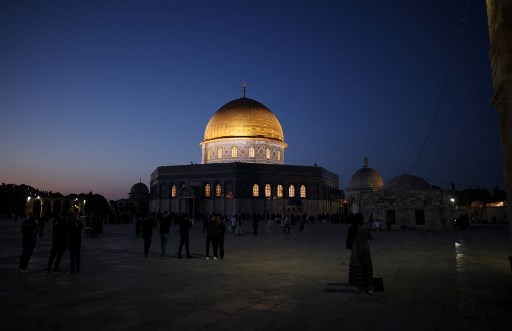PM Netanyahu’s office details how latest Israel-Gaza conflict started and clarifies alleged misinformation being circulated by the militant Palestine group Hamas

(Editor’s note: Below is the Question and Answer format statement from the Israel government’s press office under the Office of Israel’s Prime Minister Benjamin Netanyahu clarifying questions on the latest conflict between Israel and Hamas-ruled Gaza. We are publishing it in full)
———
“Everything you needed to know about the latest escalation in Israel”
Why did all of this start?
The massive rocket attacks from Gaza that began on 10 May came after weeks of Palestinian terrorism, rockets and incendiary balloons launched from the Gaza Strip, massive riots and other attacks on Jewish civilians in Jerusalem.
Although the Palestinians and their supporters have tried to justify these violent acts by linking them to a variety of Israeli actions, in fact they are the result of Palestinian plans, made in accordance to Palestinian interests, often based on internal Palestinian struggles and on Palestinian goals.
The Palestinian Authority is trying to divert attention away from its own decision to postpone elections, thereby deflecting any potential criticism. Hamas is attempting to strengthen its position, both in eyes of the Palestinian population and the Muslim world, by igniting violence and unrest, all the while trying to claim the role of Jerusalem’s defender.
This escalation was directly caused by Palestinian incitement. The Palestinian leadership has been deliberately and publicly inciting to violence over the past several weeks with the Hamas terrorist organization in particular exploiting sensitive national sentiments during the Ramadan period to stoke tensions.
How did all of this start?
This week’s flare-up follows several weeks of escalating Palestinian terrorism against Israeli civilians. The Hamas terrorist organization fired over forty rockets at Israel in April alone. Incendiary balloon devices launched from Gaza caused dozens of fires, resulting in widespread environmental and economic damage throughout southern Israel. In a shooting attack at the Tapuah Junction in early May, a Palestinian terrorist killed a 19-year-old yeshiva student and injured two others. Border police stopped an attempted stabbing attack in Hebron and prevented a serious mass attack when they diverted a minibus carrying three heavily armed terrorists to the Salem Junction border police base. Combined, these attacks left almost seventy Israeli civilians injured in just the past month – before the current escalation.
Violent rioters led by the Hamas terrorist organization and the Palestinian Authority met in planned clashes, with the goal of igniting violence and unrest in the city of Jerusalem. Deliberately manufactured flashpoints were used to stoke the flames. Every Israeli attempt to deescalate the situation was either ignored or drove the Palestinians to focus on a new issue after the removal of their contrived excuse for unrest.

How did Israel respond to the escalation?
Throughout the past several weeks, Israel has taken every measure possible to deescalate the situation. When Jerusalem was being used as the excuse for unrest, Israel stopped allowing the entrance of Jews to the Temple Mount/Haram al-Sharif and changed the route of the Jerusalem Day Flag March – before cancelling it entirely due to rocket fire – while the Supreme Court delayed a court hearing on the issue of Sheikh Jarrah. Each and every one of these steps was taken in order to prevent violence and restore calm.
Hamas responded to these measures with more violence, more incitement, and more rockets.
What’s happening on the ground in Israel?
When Gaza’s terrorist organizations began their campaign of massive rocket fire on 10 May, 1500 rockets were fired in the first 24 hours, including 7 aimed at Jerusalem. Since then, over 4,000 rockets have been fired at Israel (as of 19/05/2021). Hamas and Palestinian Islamic Jihad are firing these rockets and deliberately aiming them at key metropolitan areas throughout Israel with the purpose of killing and injuring as many Israeli civilians as possible. So far, this barrage of rocket attacks has killed several Israeli civilians and injured dozens more.

Isn’t Jerusalem the center of the current escalation?
No. This is a false claim. As always, Israel is taking every step possible to prevent escalation, unrest and violence, and to ensure freedom of worship in Israel.
Are the holy sites in Jerusalem still open to visitors?
Absolutely. Israel is a pluralistic democracy and guarantees the freedoms of religion and worship for all citizens and visitors. The sole exception is the limitations placed on Jewish visitors to the Temple Mount, the holiest site in Judaism, undertaken to prevent friction.
In fact, since the reunification of Jerusalem in 1967, Israel has safeguarded freedom of worship for all faiths in the city and nurtured rapid economic, demographic, and cultural growth. Israel will continue to uphold freedom of worship for all.

Who is Hamas?
Hamas is an Islamist terrorist organization whose ultimate goal is to annihilate the State of Israel entirely and establish a caliphate. The Hamas Charter – the organization’s manifesto – is an antisemitic document that calls for the murder of Jews simply on the basis of their religion. Hamas has been internationally recognized as a terrorist organization since 1993 in the united states, with many countries following suit, including by Canada, and the EU.
Hamas seized control of the Gaza Strip in a violent military coup in 2007, which caused the deaths of hundreds of Palestinians. It had hoped to take control of the West Bank through Palestinian elections this year, which were ultimately postponed by the Palestinian Authority.
Hamas is responsible for the death and injury of tens of thousands of Israeli and Palestinian civilians. It deliberately targets civilian population centers throughout Israel with rockets and other weapons. Hamas uses its own population as human shields, firing rockets from within civilian spaces in Gaza and hiding its leaders, terrorists and military facilities there as well. This is effectively a double war crime: not only do they indiscriminately fire rockets at Israeli civilians, but they do so from areas densely populated with Palestinian civilians.
I’ve heard that Sheikh Jarrah was the catalyst for the current escalation of violence…
This is a false claim that simply does not stand up to scrutiny. The Sheikh Jarrah issue is essentially a real estate dispute between private parties, to which the State of Israel is not party. This legal matter was deliberated in several different courts, which determined that the current tenants do not have ownership over the property in dispute and violated their duties as tenants for decades. Nonetheless, the issue is now pending before Israel’s Supreme Court, which decided to delay the scheduled Court hearing on the issue specifically in order to prevent violence and calm tensions.
This private legal dispute involving four families is being exploited to inflame passions and attack Israel. Linking the Sheikh Jarrah issue to Hamas’ attacks and rocket launches only plays into the hands of this terrorist organization.
Can reports from Gaza be trusted?
As opposed to Israel, which is a strong democracy that respects freedom of the press, Gaza is ruled by a terrorist organization that limits press coverage. Moreover, Hamas controls the government bodies that supply basic information, such as the Ministry of Health, and does not hesitate to falsify data when it serves its purposes.
Hamas has a long history of misrepresenting and even faking facts. In previous conflicts, it provided civilian casualty figures that were later proven to include large numbers of terrorists and other combatants. It presents civilians who were used as human shields as victims of Israeli aggression. Similarly, the deaths of Palestinians killed by rockets that failed inflight (it is estimated that approximately 20-30%15 of the rockets launched at Israel land in Gaza instead) are blamed on Israel.
What role can the international community play?
The international community can play an important role in both ending the current crisis and in preventing future ones.
The first and primary task is to communicate to Hamas that terrorism will not be tolerated, let alone rewarded. As long as this internationally-recognized terrorist organization believes that it stands to gain from the violence, rockets will continue to reign down on towns and cities, forcing Israel to respond.
Hamas has a long history of creating the same scenario: it designs a situation that leaves Israel with no choice but to react, deliberately places Gaza’s civilian population and infrastructure in harm’s way, and then reaps the rewards by claiming victim status. The importance of not falling into Hamas’ trap cannot be overstated.
World leaders who support Israel in its fight against terrorism are not lacking in compassion towards Palestinians in the Gaza Strip. Rather, they are acknowledging the reality of the situation: Hamas instigated this conflict with no concern for civilian life on either side of the border and with the expectation that it can exploit Palestinian suffering to delegitimize the State of Israel. Suffering on both sides will most quickly be alleviated by focusing the blame on those responsible for starting and perpetuating the violence while denying Hamas its objectives.
Hamas, like many other terrorist organizations, seeks to undermine the legitimacy of democratic nations acting in self-defense. Its actions cannot be condoned, while attempts to create equivalence between a terrorist organization that provokes conflict and a democratic state that seeks to protect its population is not only morally offensive, it encourages future terrorist attacks.
(Courtesy Prime Minister’s Office of the State of Israel)








